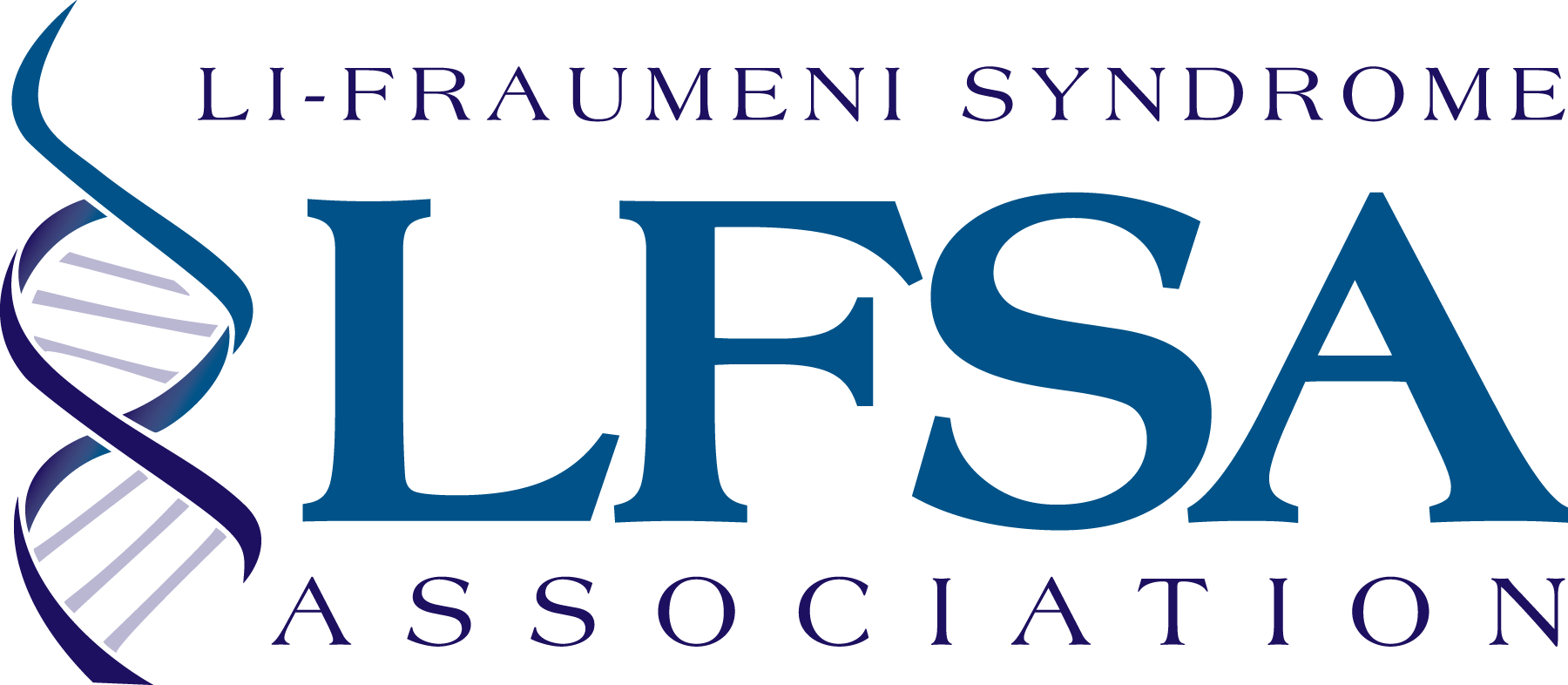Genetics matter: know your family, know your genes.
What is Li-Fraumeni syndrome (LFS)?
- LFS is an inherited, genetic predisposition to many types of cancers that affect both children and young adults.
- It was discovered by Drs. Li and Fraumeni in 1969 after studying childhood cancer and cancer-prone families.
- Most families with LFS have an inherited pathogenic variant in the TP53 gene – a tumor suppressor gene.
- TP53 is the most studied human gene in the world – Its primary function is to guard against cancer.
- LFS predisposes carriers to a diverse range of childhood and adult cancers – some rare and often early onset.
- LFS carriers have approximately a 50% chance of developing cancer by age 40, and up to a 90% chance by age 60.
- The most commonly occurring cancers among those with LFS include breast cancer, brain tumors, adrenocortical carcinomas, osteosarcomas, and soft tissue sarcomas. LFS is also associated with many other cancers.
Why is Genetic Testing Important?
- The vast majority of LFS patients, more than 80%, are found to have a family history of cancer. Scientists are currently studying the 20% of LFS patients who are the first in their families to receive an LFS diagnosis. These are called de novo.
- Participation in early-detection screening has proven to increase the overall survival for those with LFS.
- Radiation therapy should be considered in people with LFS only if its use is essential to the control or cure of the cancer because of its link to increased risk for LFS patients.
-
Unique Risk to Women
- Women with LFS have as high as a 90% risk of developing cancer in their lifetime due to their markedly increased risk of breast cancer.
- Breast cancers can occur at unusually young ages in women with LFS, as early as their 20’s and 30’s.
- It is critical to know if a breast cancer patient has LFS because the information can influence treatment decisions, like avoiding radiation.
-
Unique Risk to Children
- Each child born to a parent with LFS has a 50% chance of inheriting the mutation.
- 40% of children with LFS will develop at least one cancer by the age of eighteen.
- Almost 50% of children diagnosed with adrenocortical and/or choroid plexus carcinomas have LFS.
- Those who survive childhood cancer are at an increased risk for developing multiple primary cancers.
-
LFS and Public Health
- Cancer touches everyone. If you have not had a cancer diagnosis personally, you know someone who has.
- Childhood, early onset, rare, as well as common cancers (such as breast cancer) may be linked to LFS.
Radiation treatments may increase the risk of developing additional cancers in those with LFS. - The malfunctioning TP53 gene is found in nearly all cancers within the general population. The work of LFS scientists and physicians is contributing to our understanding of all forms of cancer.
- Increased genetic testing of people with cancer has identified more carriers of pathogenic TP53 variants than expected.
- A positive genetic test for LFS could affect a cancer patient’s treatment plan.
- Carriers of TP53 variants can take proactive measures such as making important lifestyle changes to reduce their risk, and they can participate in early detection screening to best improve treatment outcomes. Importantly, they can also ensure that family members are tested.

